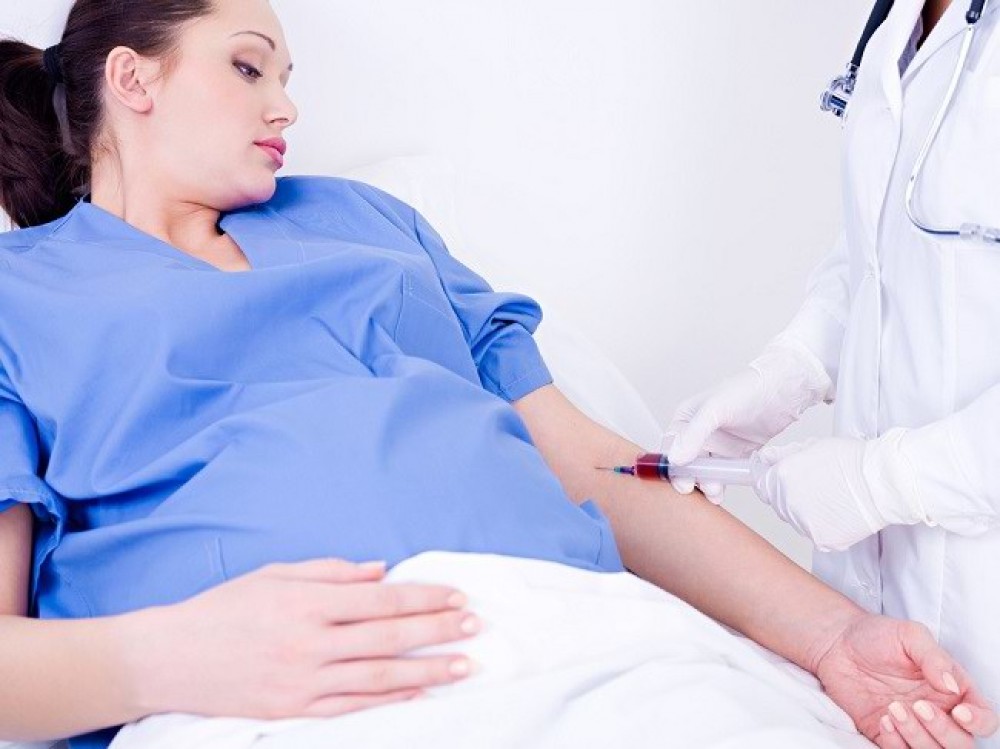Understanding the TORCH Test and How It Impacts Pregnancy

Pregnancy is a critical phase that requires careful monitoring to ensure the health of both the mother and baby. One essential test that doctors may recommend is the TORCH test, which helps identify infections that could pose risks during pregnancy. Many expectant mothers wonder whether they need this screening, what it detects, and whether a successful pregnancy is possible after a positive result. Understanding this test can help expectant mothers make informed decisions about their prenatal care.
What Is a TORCH Screen?
The TORCH screen is a blood test that checks for infections that may be passed from the mother to the baby during pregnancy. The name "TORCH" is derived from the initials of several infections included in the screening:
- Toxoplasmosis – A parasitic infection that can be contracted from undercooked meat, contaminated water, or exposure to cat feces.
- Other infections – Includes syphilis, varicella-zoster virus (chickenpox), and parvovirus B19, which can cause complications if acquired during pregnancy.
- Rubella – Commonly known as German measles, this virus can lead to congenital disabilities if a mother is infected while pregnant.
- Cytomegalovirus (CMV) – A virus spread through bodily fluids that can cause developmental issues in newborns.
- Herpes simplex virus (HSV) – A sexually transmitted infection that can be transmitted to the baby during birth if the mother has an active infection.
Doctors typically perform this test during early pregnancy or for women who have experienced previous pregnancy complications, as detecting infections early can reduce risks to the baby.
What Causes TORCH Infections?
These infections can be transmitted in different ways, and some may remain dormant in the body for years before becoming active. They are often spread through direct contact, contaminated food, sexual transmission, or exposure to infected animals.
Women with weakened immune systems may be more susceptible to infections, and certain activities, such as handling raw meat or caring for pets, may increase the likelihood of contracting toxoplasmosis. Rubella is primarily spread through respiratory droplets, while CMV can be transmitted through saliva, urine, or close contact with an infected person.
Since some of these infections do not always cause noticeable symptoms in the mother, a TORCH screening test is useful for identifying any potential risks before they affect the baby’s development.
When Is the TORCH Test Done in Pregnancy?
Doctors usually recommend TORCH testing during the first trimester or for women planning to conceive. Early detection of any active infection allows doctors to implement preventive measures or treatments to protect fetal development.
In some cases, doctors may suggest additional screening later in pregnancy, especially for women with a higher risk of exposure or those who experience symptoms like unexplained fever, rash, or swollen lymph nodes. If a mother has had a history of recurrent pregnancy loss or stillbirth, testing may also help identify underlying infections.
How Are TORCH Infections Treated?
The approach to treatment depends on the specific infection and its severity. Some infections require antiviral medications or antibiotics, while others are managed through monitoring and supportive care.
For toxoplasmosis, medications like spiramycin or pyrimethamine are prescribed to reduce transmission risks to the baby. Rubella has no specific treatment, but pregnant women are closely monitored for complications. If cytomegalovirus (CMV) is detected, doctors may recommend further tests to assess any effects on fetal development.
If a mother has active herpes simplex virus (HSV), antiviral medication is often prescribed, and a cesarean delivery may be advised to prevent transmission during birth. Syphilis and other bacterial infections can typically be treated with antibiotics, reducing potential risks to the fetus.
Treatment decisions depend on various factors, including how far along the pregnancy is, the severity of the infection, and whether the baby has already been affected. In most cases, early detection through screening improves outcomes.
Can You Have a Successful Pregnancy After a Positive TORCH Test?
A positive TORCH test result does not necessarily mean a pregnancy will face complications. Some women may test positive due to past infections, meaning they have developed immunity and do not have an active infection. However, if an active infection is detected, doctors will create a treatment plan to reduce risks and monitor fetal health.
Steps to support a healthy pregnancy after a positive TORCH test include:
- Following medical advice – Doctors may recommend medications or additional tests depending on the type of infection detected.
- Maintaining a healthy lifestyle – Eating nutritious foods, staying hydrated, and getting enough rest can help support the immune system.
- Regular check-ups – Frequent monitoring allows doctors to track fetal development and detect any complications early.
- Avoiding high-risk exposure – Reducing contact with potential sources of infection, such as unwashed produce, undercooked meat, or close contact with sick individuals, can help minimize risks.
Women who have previously experienced pregnancy complications due to TORCH infections may need additional prenatal care in future pregnancies. Working closely with a healthcare provider can improve the chances of a healthy pregnancy and delivery.
The Importance of TORCH Testing in Pregnancy
Undergoing a TORCH screening test is a crucial step in ensuring maternal and fetal health. This test helps identify potential infections early in pregnancy, allowing doctors to take the necessary steps to prevent complications.
While a positive test result may seem concerning, medical advancements allow most pregnancies to be successfully managed with the right care. Understanding risk factors, treatment options, and preventive measures helps expectant mothers take the best possible steps for a healthy pregnancy.
More Latest Article

PRENAGEN Club, untuk Moms!





